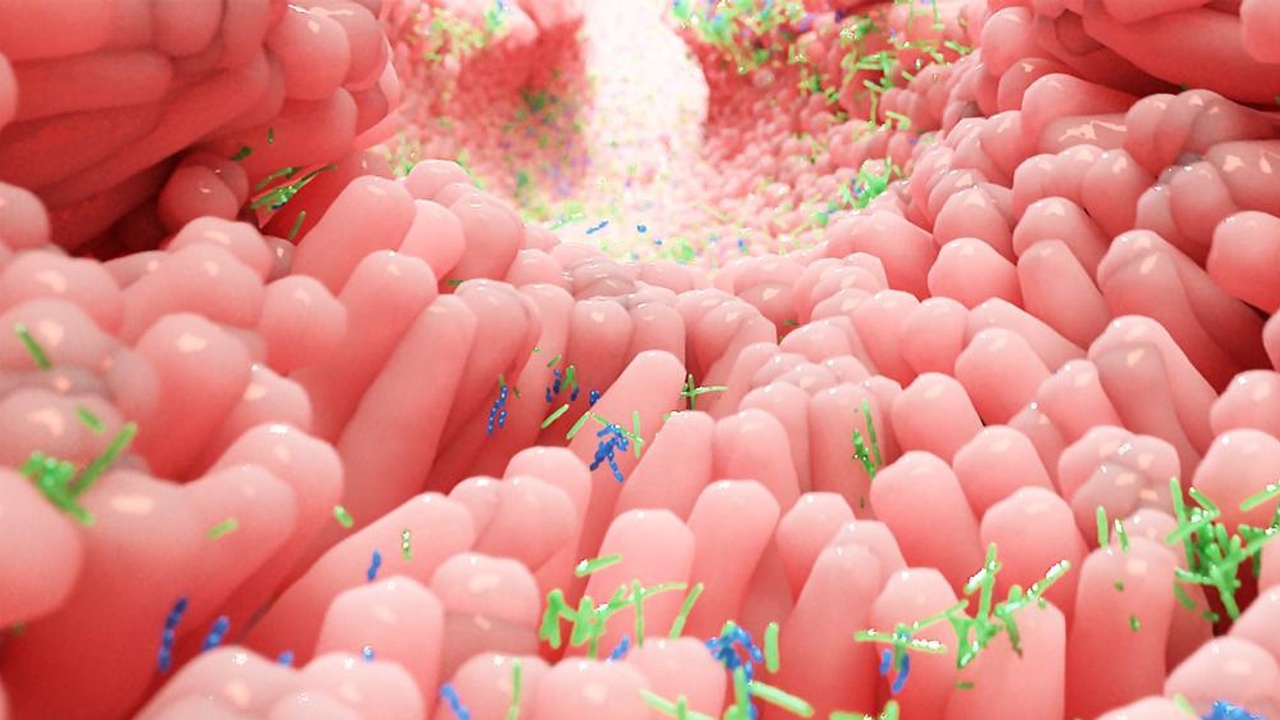Short Chain Fatty Acids - Digestive By Products With a Powerful Punch
Apr 15, 2021
In recent times the gut and our microbiome have become huge focal points for nutritional science, research, and indeed discussions of health within popular culture. The discoveries being made are staggering. We are seeing that there are direct and specific controls of immunological responses. We know the there is cross talk between the microbiome, gut, and brain. And there are localised and gut specific benefits given by the microbiome too.
I could go into detail about every single role that the microbiome plays, but I have written about some of it before, particularly the immunological aspects, plus if I went into all of it, it would be a whole new book. So, I am going to focus on one thing, and something that I have been getting more and more intrigued by since having Dr Alan Desmond on my Podcast - Listen to the episode HERE!! On many occasions the discussion moved to short chain fatty acids!
You have heard me bang on and on about essential fatty acids like omega 3. These are long chain fatty acids. This means that their chemical structure is a long chain of carbons and hydrogens. Short chain fatty acids, well, as I am sure your inner Columbo has determined, short chain fatty acids are similar substances but with short chains on them. They are a specialised group of substances that have some fascinating jobs to do.
Where do they come from
Short chain fatty acids are manufactured in the gut by the bacterial colony that reside there. This is mostly influenced by our diet however. You may have heard the term pre biotic used before, when referring to certain foods. These types of foods tend to be rich in very large complex sugars that are resistant to the usual means of carbohydrate breakdown, such as salivary and pancreatic enzymes. Instead they need to be broken down by our gut flora by means of fermentation. This process known as saccharolytic fermentation does indeed partially breakdown these very complex carbohydrates, but also benefits the bacterial colony. It gives them a food source which allows the colony to flourish and to grow. Then also, we have a byproduct produced from this fermentation. That byproduct is - a range of short chain fatty acids, notably acetate, propionate and butyrate. It just so happens that these byproducts are incredibly beneficial to our health, but what do they actually do?
Acetate
The most abundant short chain fatty acid is acetate. It is produced most by Bifidobacteria and Lactobacilli. Acetate has many beneficial roles to play, the first being regulation of gut pH. Remember, cells and tissues are extremely sensitive to any kind of change in pH and even a slight fluctuation can prove deadly, so there needs to be control systems at play everywhere. Acetate maintains a pH that not only keeps the gut tissues healthy, but that also creates the perfect environment for gut flora to thrive and also that is inhospitable to potentially harmful microbes.
Acetate also helps to play a role in maintaining our weight. It does this by promoting the release of the hormones peptide YY and GLP-1 that regulate our appetite. It also appears that acetate can help regulate fat storage too.
Butyrate
This is the leas abundant fatty act in the gut but the roles it plays are vital. First off it has a localised anti-inflammatory activity, helping to reduce sub clinical chronic inflammation that cane be linked to disease in later life.
Butyrate is the primary fuel source for cells called colonocytes, making up 90% of their total energy source. These cells use butyrate to preserve the integrity of our gut lining, helping to maintain the integrity of the tight junctions that bind the cells together, as well as ensuring the health of the cells themselves.
Another role that butyrate plays is that it can induce apoptosis (programmed cell death) in damaged or rogue cells that may potentially turn cancerous.
One interesting function of butyrate is an effect upon cognition. There is a well documented, and often drastically misunderstood gut-brain-axis where there is intercommunication between the gut and the brain via other branches of the nervous system. It is a two way communication. The CNS regulates gut motility and many automatic digestive functions. Then, substances produced in the gut can influence neurological activity also. Whilst the research is in its infancy, butyrate is associated with improvements in memory and cognitive performance.
Propionate
The final short chain fatty acid produced in the gut is propionate. It has the ability to improve cholesterol levels and also deliver some anti-inflammatory effects which can be active systemically, not just in the local environment.
Propionate is known to strongly stimulate the release of the satiety hormones peptide YY and GLP-1.
As you can see, these active bi products can have some meaningful benefits to our health. How do we ensure we have a good level of them kicking around? Simple….and it is something I encourage you to do all the time anyway…….build your diet around whole foods, especially lots of plants!!!




